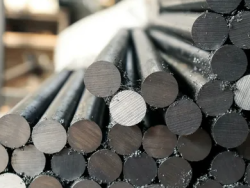As the EU negotiates its next climate commitment ahead of the UN's September deadline, German think tank Agora Industry has published a landmark report arguing that green iron trade could become a strategic pillar of the European clean industrial deal.
The report concludes that integrating green hot briquetted iron (HBI) imports into production in Europe could reduce steel production costs by 12-15 percent by 2040, save industrial jobs, and strengthen global climate cooperation.
Why the green iron trade matters
Green iron is the most energy-intensive stage of production. By importing green iron, Europe can preserve the creation of value and jobs in the domestic steel processing industry, reduce production costs, while creating sustainable international supply chains that accelerate the transition to green production.
"Green iron trade can become a strategic pillar of Europe's industrial policy Securing lead markets for green steel at home and building partnerships abroad are an integral part of this strategy," said Julia Metz, Director of Agora Industry.
Cost savings from global partnerships
Agora's feasibility modeling shows clear cost advantages:
Middle East and North Africa: importing green cast iron can reduce steel production costs in Germany by about 12 percent.
Australia, Brazil, South Africa: imports can reduce costs by up to 15 percent.
The EU's three-stage strategy
Agora offers a step-by-step






